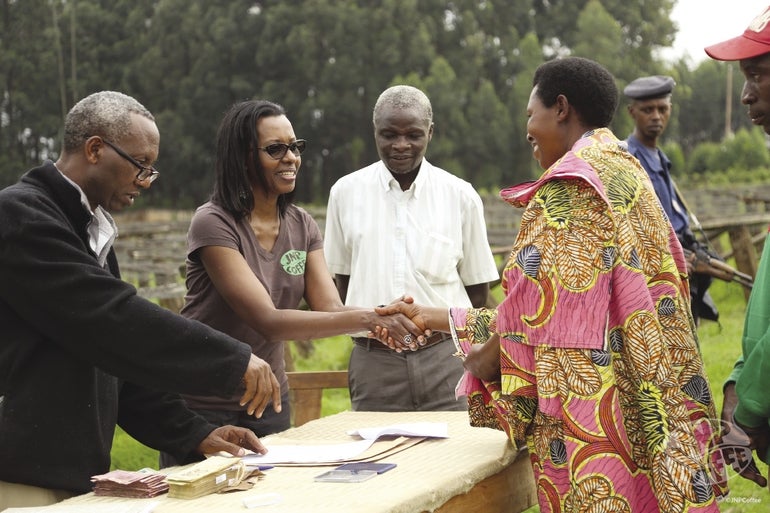After graduating high school in Burundi, Jeanine Niyonzima-Aroian moved to the U.S. for college before living all over the world – Canada, France, Asia, the U.S. – working for corporations.
Get Instant Access to This Article
Subscribe to Worcester Business Journal and get immediate access to all of our subscriber-only content and much more.
- Critical Central Massachusetts business news updated daily.
- Immediate access to all subscriber-only content on our website.
- Bi-weekly print or digital editions of our award-winning publication.
- Special bonus issues like the WBJ Book of Lists.
- Exclusive ticket prize draws for our in-person events.
Click here to purchase a paywall bypass link for this article.
After graduating high school in Burundi, Jeanine Niyonzima-Aroian moved to the U.S. for college before living all over the world – Canada, France, Asia, the U.S. – working for corporations. Now, the Shrewsbury resident runs JNP Coffee, which focuses on helping women farmers in her native country rise out of poverty and carve out a place in the international market.
Why did you start JNP?
I used to run a nonprofit called Burundi Friends International, when I was living in San Diego. About 10 years ago, our board members took a trip to Burundi to see how things were going. On that trip, I had someone tell me I should be in business in Burundi, as industries were being privatized and it was a good time to get into it.
On that same trip, I ran into my cousin, who I hadn’t seen in a very long time, and he said he needed help with his coffee business. At the time, I was pregnant with twins, running the nonprofit, and my main business was my telecommunications consulting firm. I didn’t know how much help I could be.
At the time, Burundi coffee wasn’t really well known on the world stage, but my cousin ended up scoring really well in the international Cup of Excellence competition of high-quality coffee. I realized there was a market opportunity to get Burundi coffee out in the world. So, I decided to drop my consulting business and handed off the day-to-day nonprofit work, although Burundi Friends International is still going strong out in California.
How did you end up working with women Burundi farmers?
About two years after helping my cousin, I went back to Burundi on my regular trip. Several women farmers had known what I had done to help my cousin, and they asked me to help them sell their coffee, too.
First, I was skeptical, because it is hard to have really high-quality coffee like my cousin had. But in a very short period of time, the other farmers showed they could produce high-quality coffee, too. The program became very successful.
How does JNP focus on women’s empowerment?
Burundi is one of the poorest countries on the planet, and often women don’t have much money or much say. With the money we received from selling coffee, we started financial literacy programs, so they could use the money to build something lasting, rather than having the farmers spend it on beer or whatever, as you often see in these poorer countries.
With the money they saved from their share of the coffee sales, the women farmers started a fund, and they have been meeting weekly since 2018 to determine how to wisely spend it. They use the money to loan out to the members in their group to start businesses, and then they repay the loan with interest. They start fruit stands, drink distribution centers, and other types of businesses. It becomes a support system for the women.
Women farmers are really the backbone in these areas of the world. By putting money in their pockets, they can advocate for and change these communities in different ways. They can change the world.
Where does JNP Coffee sell?
We sell all over the world. Here locally, Acoustic Java and Good as Gold in Worcester have our coffee, as does Aero Coffee Roasters in Northborough and Barrington Coffee Roasting Co. in Lee.
What’s next for JNP Coffee?
I’m always seeing us expanding in different places. What we are doing in Burundi, I would like to bring to a different part of Africa. The model can really be replicated all over the world. Looking at places like Burundi, I see this as a way to teach them how to take care of themselves, so they are less dependent on handouts. This is the best way forward. They are very capable and smart, and they just need a little bit of help sometimes.
What’s next for you?
Maybe I can find a good buyer for the firm, who can take it to the next level.
I’ve been able to see the world through my education and through my work. It has been a joy.
This interview was conducted and edited for length and clarity by Brad Kane, WBJ editor.

